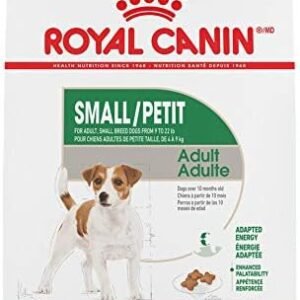Introduction
Have you ever wondered if your canine companion can indulge in the creamy goodness of yogurt? Picture this: you, savoring a bowl of yogurt on a sunny day, and your faithful dog gazing at you with those pleading eyes, hoping for a taste. The question lingers: can dogs eat yogurt? It’s a query that pet owners often find themselves pondering. After all, yogurt is celebrated worldwide for its numerous health benefits. But can it be as beneficial for our furry friends?
Dogs, our loyal companions, deserve the best of everything, especially when it comes to their diet. We all know that some human foods are off-limits for our canine pals, but where does yogurt stand in the spectrum of pet-friendly treats? Understanding what our dogs can and cannot consume is vital to their well-being. It’s not just about keeping them away from harmful foods; it’s also about enriching their diet with safe, nutritious options.

In this article, we embark on a journey to unravel the mystery behind dogs and yogurt. Are they a match made in heaven, or is it a recipe for disaster? We will delve deep into the question: can dogs eat yogurt? But our exploration doesn’t stop there. We will navigate through the pros and cons of incorporating yogurt into your dog’s diet. How much is too much, and what should you do if your dog accidentally consumes a part of yogurt that isn’t suitable for their consumption? These are the queries we aim to address comprehensively.
Understanding what our pets can digest is more than just responsible pet ownership; it’s an expression of love and care. So, let’s embark on this enlightening journey, exploring the world of dogs and yogurt, ensuring that your furry friend’s diet is not only delicious but also safe and healthy.
Table of Contents
Can Dogs Eat Yogurt?
When it comes to the question of whether dogs can indulge in yogurt, the answer is generally positive. Yogurt itself is not toxic or dangerous to dogs. In fact, many dogs enjoy the creamy texture and delightful taste of this dairy delight. While it’s safe for dogs to consume in moderate amounts, there are certain considerations to keep in mind.
Nutrition Facts of Yogurt
Before delving into the benefits and drawbacks, let’s examine the nutritional composition of yogurt. Below is a table outlining the key nutrition facts of yogurt, which vary based on the type of yogurt, but generally include proteins, fats, carbohydrates, vitamins, and minerals:
| Nutrient | Amount per 100 g of plain whole milk yogurt |
|---|---|
| Calories | 61 kcal |
| Fat | 3.3 g |
| Carbohydrates | 4.7 g |
| Fiber | 0 g |
| Sugar | 4.7 g |
| Protein | 3.5 g |
| Vitamin A | 27 mcg |
| Vitamin C | 0.5 mg |
| Calcium | 121 mg |
| Iron | 0.1 mg |
Nutritional Benefits of Yogurt for Dogs
Yogurt does offer some nutritional benefits for dogs. It is a good source of protein, essential for muscle growth and repair. Additionally, yogurt contains calcium, which supports bone health. Moreover, yogurt is rich in probiotics, which are beneficial bacteria that promote a healthy digestive system in dogs. Probiotics aid in balancing the gut flora, improving digestion, and enhancing nutrient absorption.
In terms of vitamins and minerals, yogurt provides essential nutrients such as vitamin B12, riboflavin, phosphorus, and potassium. These nutrients play a crucial role in various bodily functions, ensuring your dog’s overall well-being.
Drawbacks of Feeding Yogurt to Dogs
While yogurt offers several nutritional benefits, it’s crucial to be aware of potential drawbacks. Some dogs may be lactose intolerant, meaning they lack the necessary enzyme (lactase) to properly digest lactose, the sugar found in milk and dairy products. Feeding yogurt to lactose-intolerant dogs can lead to digestive issues like diarrhea, gas, and stomach discomfort.
Additionally, flavored or sweetened yogurts often contain added sugars and artificial ingredients, which are harmful to dogs. Excessive sugar intake can lead to obesity, dental problems, and even diabetes in dogs. It’s essential to opt for plain, unsweetened yogurt to avoid these complications.
Yogurt as a Complementary Treat
Yogurt, if given in moderation and the right form, can indeed be a healthy treat for your furry friend. However, it should never replace a dog’s primary diet. Instead, consider yogurt as an occasional addition, a special treat that provides a boost of nutrients and a delightful change of taste for your dog. As responsible pet owners, it’s our duty to ensure our pets’ diets are balanced and suitable for their specific dietary needs.
In the subsequent sections of this article, we will explore in greater detail how much yogurt is appropriate for dogs, different types of yogurt suitable for canine consumption, and what to do if your dog happens to consume yogurt that contains harmful additives. Let’s continue our journey into the world of dogs and yogurt,uncovering the dos and don’ts to keep your beloved pet happy and healthy.
How Much Yogurt Can a Dog Eat?
When it comes to giving your dog yogurt, the golden rule is moderation. While yogurt can be a healthy addition to your dog’s diet, it should only be given in limited quantities. Treats, including yogurt, should ideally not constitute more than 10% of your dog’s daily calorie intake. It’s crucial to strike a balance between providing a tasty treat and ensuring your dog’s overall diet remains nutritionally sound.
Start Small and Observe
Before you introduce yogurt into your dog’s diet, start with a small portion. Observe how your dog reacts to it. Just like humans, dogs can have varying reactions to different foods. Some dogs may take to yogurt without any issues, while others might experience digestive discomfort. By beginning with a small piece, you can gauge your dog’s tolerance and prevent any adverse reactions.
Preparing Yogurt for Your Dog
When offering yogurt to your dog, it’s important to prepare it in a certain way. Always opt for plain, unsweetened yogurt. Flavored yogurts often contain added sugars and artificial ingredients, which are harmful to dogs. These additives can lead to various health problems, so it’s best to steer clear of them entirely. Additionally, avoid yogurts with xylitol, a sugar substitute that is highly toxic to dogs.
Consider Your Dog’s Size and Breed
The amount of yogurt your dog can tolerate may depend on its size and breed. Larger dogs generally have a higher tolerance for dairy products than smaller breeds. For instance, a large Labrador may be able to consume a bit more yogurt than a tiny Chihuahua without any problems. Always consider your dog’s individual characteristics and consult your veterinarian if you’re uncertain about the appropriate serving size.
Appropriate Serving Sizes Based on Weight
Determining the right serving size of yogurt for your dog involves considering its weight. Here’s a general guideline to help you offer yogurt in appropriate portions:
- Small Dogs (up to 20 lbs): 1-2 teaspoons of yogurt, 2-3 times a week.
- Medium Dogs (20-50 lbs): 1-2 tablespoons of yogurt, 2-3 times a week.
- Large Dogs (50+ lbs): 2-4 tablespoons of yogurt, 2-3 times a week.
Remember, these are general recommendations and can vary based on your dog’s individual needs and reactions. Always observe your dog for any signs of allergies, gastrointestinal issues, or changes in behavior after consuming yogurt.
By adhering to these guidelines and being mindful of your dog’s unique traits, you can incorporate yogurt into their diet in a way that promotes good health and enjoyment without causing harm. In the next section, we will explore the different types of yogurt that are safe for dogs, ensuring that you make the best choice for your beloved pet’s well-being. Let’s continue our journey into the world of canine nutrition and yogurt consumption.
What Are the Risks of Feeding Yogurt to Dogs?
While yogurt can be a delightful treat for many dogs, it’s not without its risks. Understanding these potential hazards is crucial for responsible pet ownership.

Food Allergies and Intolerance
Dogs, like humans, can develop allergies to certain foods, including yogurt. While not all dogs are allergic to dairy, some may have lactose intolerance, making it difficult for them to digest lactose, the sugar present in dairy products. Signs of food intolerance can manifest as short-term gastrointestinal distress. If your dog experiences symptoms like diarrhea, vomiting, gas, or stomach discomfort after consuming yogurt, it could be a sign of lactose intolerance or a food allergy.
Harmful Components in Yogurt
Additionally, certain components in yogurt can pose risks to dogs. For instance, some yogurts contain artificial sweeteners like xylitol, which are highly toxic to dogs and can lead to rapid insulin release, causing hypoglycemia (low blood sugar). Even a small amount of xylitol can be life-threatening to dogs, so it’s vital to check yogurt labels for this ingredient and keep it far away from your canine companion.
Specific Issues Caused by Yogurt Consumption
Apart from lactose intolerance and harmful additives, there are specific issues that can arise from dogs consuming yogurt. One of the primary concerns is an upset stomach. The high-fat content in some yogurts can lead to gastrointestinal upset, causing discomfort and potentially leading to more severe issues if consumed in excess. Moreover, dogs that have compromised immune systems, elderly dogs, or puppies might be more susceptible to these problems.
Signs and Symptoms of Adverse Reactions
It’s essential to be vigilant and watch for signs of adverse reactions if your dog has consumed yogurt. Some common symptoms include:
- Vomiting: Continuous vomiting after consuming yogurt is a red flag.
- Diarrhea: Loose, watery stools can indicate an upset stomach.
- Excessive Gas: If your dog is unusually gassy after eating yogurt, it might not be agreeing with their digestive system.
- Lethargy: Unexplained tiredness or lack of energy could indicate discomfort.
- Agitation or Restlessness: If your dog seems unusually restless or agitated, it might be experiencing discomfort.
If you notice any of these symptoms, it’s crucial to contact your veterinarian promptly. Early intervention can prevent minor issues from escalating into severe health problems.
Understanding these risks and being aware of your dog’s individual tolerance levels is vital when considering yogurt as a treat. In the following section, we will explore the various types of yogurt that are safe for dogs, ensuring you make informed choices for your furry friend’s well-being. Let’s continue our exploration into the world of canine nutrition and yogurt consumption, ensuring your pet’s safety and happiness are the top priorities.
How to Feed Yogurt to Your Dog and Make It More Enjoyable
Feeding yogurt to your dog can be more than just a simple treat; it can be a delightful experience that adds variety to their diet and keeps them excited about mealtime. Here are several creative ways to incorporate yogurt into your dog’s diet, making it enjoyable and nutritious for them.
1. Fresh or Frozen Treats:
One of the simplest and most popular ways to give yogurt to your dog is as a fresh or frozen treat. You can spoon yogurt into ice cube trays and freeze them, creating yogurt popsicles that are perfect for hot days. Alternatively, you can serve plain yogurt in a bowl and let your dog enjoy it as a refreshing snack.
2. Food Topper or Mixer:
Yogurt can also be used as a food topper or mixer to enhance your dog’s regular meals. Adding a dollop of yogurt to your dog’s kibble can make their meal more appealing and add a creamy texture. This is especially useful for picky eaters who may need a little extra encouragement to finish their food.
3. Homemade Treats and Snacks:
Yogurt serves as an excellent base for homemade dog treats and snacks. You can create a variety of tasty treats by mixing yogurt with dog-friendly ingredients such as peanut butter, banana, or blueberries. These homemade treats not only provide a delicious yogurt flavor but also offer additional nutrients from the added ingredients.
Creative Methods for Enhancing Your Dog’s Food:
Experimenting with creative methods to enhance your dog’s food with yogurt can turn mealtime into an exciting experience. You can create yogurt swirls on top of their food, mix it with dog-safe fruits and vegetables, or even use it as a drizzle over homemade biscuits. These methods not only make the meal more visually appealing but also introduce different textures and flavors, making the dining experience enjoyable for your furry friend.
Recipes and Ideas:
Yogurt and Peanut Butter Biscuits:
Ingredients:
- 1 cup plain yogurt
- 1/2 cup peanut butter (make sure it doesn’t contain xylitol)
- 2 cups whole wheat flour
Instructions:
- Preheat your oven to 350°F (175°C).
- In a mixing bowl, combine yogurt and peanut butter until well blended.
- Gradually add the flour, mixing until the dough forms.
- Roll out the dough on a floured surface and cut it into desired shapes using cookie cutters.
- Place the biscuits on a baking sheet and bake for 15-20 minutes or until golden brown.
- Let the biscuits cool completely before serving them to your dog.
Frozen Yogurt and Berry Treats:
Ingredients:
- 1 cup plain yogurt
- 1/2 cup blueberries
- 1/2 cup strawberries, hulled and chopped
Instructions:
- Blend the yogurt, blueberries, and strawberries in a blender until smooth.
- Pour the mixture into silicone molds or ice cube trays.
- Freeze the molds for a few hours or until the treats are completely frozen.
- Pop the frozen treats out of the molds and let your dog enjoy this cool and nutritious snack.
By incorporating yogurt into these creative recipes and mealtime strategies, you not only make your dog’s diet more enjoyable but also provide them with the health benefits of yogurt in a tasty and enticing way. In the final section of this article, we will summarize the key points discussed and provide a concise overview of the do’s and don’ts of feeding yogurt to dogs. Let’s conclude our exploration, ensuring that your dog’s culinary adventures are both safe and delightful.
FAQs About Dogs Eating Yogurt

1. Can all dogs eat yogurt?
While yogurt is generally safe for most dogs, it’s essential to consider individual factors. Dogs that are lactose intolerant might experience digestive issues when consuming yogurt. Always monitor your dog for any adverse reactions and consult your vet if you are unsure.
2. Is Greek yogurt better for dogs?
Greek yogurt is a popular choice due to its higher protein content and lower lactose levels. However, the choice between regular and Greek yogurt ultimately depends on your dog’s preferences and tolerance. Some dogs may prefer the creaminess of regular yogurt.
3. Can puppies eat yogurt?
Puppies have sensitive digestive systems, and introducing new foods, including yogurt, should be done cautiously. It’s advisable to consult your veterinarian before introducing yogurt into a puppy’s diet to ensure it won’t cause any adverse reactions.
4. Are there specific health benefits to feeding yogurt to dogs?
Yes, yogurt offers several health benefits to dogs, including being a good source of protein, calcium, and probiotics. Probiotics, in particular, promote a healthy gut and aid in digestion. However, these benefits are best realized when yogurt is given in moderation.
5. Can yogurt help with a dog’s upset stomach?
Yes, yogurt with live and active cultures, such as probiotics, can aid in balancing the gut flora and help with mild digestive issues. It can soothe the stomach and restore the natural balance of bacteria, easing discomfort.
6. Can yogurt be given to dogs with allergies?
Dogs with dairy allergies or lactose intolerance should avoid yogurt. Even lactose-free options might not be suitable for all dogs with dairy allergies. Always consult your vet for suitable alternatives if your dog has allergies.
7. Can yogurt be used as a training treat?
Yogurt can indeed be used as a training treat due to its appealing taste. However, ensure it’s given in small amounts to avoid overfeeding, as excessive treats, even healthy ones, can lead to weight issues.
8. How should I introduce yogurt into my dog’s diet?
Introduce yogurt gradually, starting with a small amount to assess your dog’s tolerance. Monitor for any signs of allergies or digestive issues. If your dog reacts positively, you can incorporate yogurt into their diet following the recommended portion sizes.
9. Can dogs eat yogurt daily?
While dogs can enjoy yogurt, it’s not necessary or advisable to give it to them daily. Yogurt should be an occasional treat and not a staple in their diet. Providing it a few times a week in appropriate portions is ideal.
10. Can yogurt replace a dog’s regular diet?
No, yogurt should never replace your dog’s primary diet. It lacks essential nutrients found in balanced dog food. Yogurt should be viewed as an occasional supplement or treat rather than a substitute for a well-rounded dog diet.
Conclusion
In summary, yogurt can indeed be a tasty and nutritious addition to your dog’s diet, but it should be offered in moderation and with awareness of potential risks. As explored in this article, dogs can enjoy yogurt as an occasional treat, provided they don’t have lactose intolerance or allergies. However, it’s crucial to remember that yogurt is not a necessary component of their diet and should never replace their primary dog food. Overindulgence or improper feeding can lead to adverse reactions, so it’s vital to observe your furry friend closely when introducing any new treat.
If you’re looking for alternative snacks that are safe and healthy for dogs, consider options like blueberries, carrots, or plain cooked meats. These treats are lower in sugar and acidity than yogurt and provide similar nutritional benefits. Always ensure that any fruits or vegetables you offer are prepared properly and devoid of seeds, pits, or cores, which can be harmful to your dog.



















